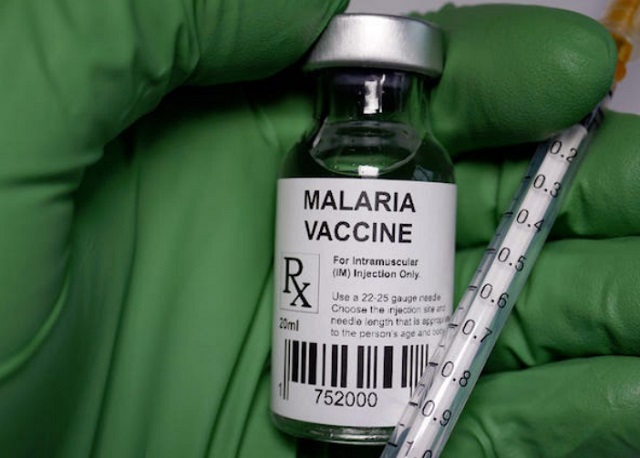
Kampala, Uganda | PATRCIA AKANKWATSA | While malaria remains a major public health challenge, its impact extends far beyond the immediate illness and death it causes. One of its less recognised but critical consequences is the severe strain it places on blood supplies, particularly in malaria-endemic countries like Uganda.
In Uganda, malaria is widespread across over 95% of the country and remains the leading cause of illness and death. It accounts for 25–40% of all outpatient visits, 20% of hospital admissions, Uganda’s blood collection efforts fall short of the World Health Organization’s recommended threshold of one unit per capita annually.and 9–14% of inpatient deaths.
According to the World Health Organisation (WHO), Uganda requires approximately 450,000 units of blood annually. However, the country faces a significant shortfall, falling short by over 30% of this need. WHO recommends that 1% of the population should donate blood each year to meet this demand.
The demand for blood transfusions for malaria patients has created a domino effect across Uganda’s healthcare system.
“This severely impacts the availability of blood for mothers experiencing postpartum haemorrhage, accident victims, and patients with chronic conditions like sickle cell disease. It’s a serious issue that stresses the need for comprehensive interventions,” said Dr Jimmy Opigo, the assistant commissioner in charge of the National Malaria Control at the Ministry of Health on Dec.10.
Dr Opigo was speaking at the handover of vital blood bank equipment at the Uganda Blood Transfusion Services (UBTS).
Dr. Opigo emphasized the important role of UBTS in managing the country’s blood supply, stating, “Blood is a highly specialized resource that cannot be manufactured or bought, it can only be donated.”
“I urge everyone to recognize that blood cannot be bought, only given so let us all contribute to securing a life-saving supply for those in need.”
According to Opigo of all the people who contract malaria, about 5% or close to one million cases annually in Uganda, progress to severe malaria. Nearly 40% of these cases, approximately 400,000 people, experience severe anaemia and require blood transfusions. Yet, only half about 200,000 receive the necessary blood transfusions.
Opigo said that delays in treating malaria can double the chances of developing severe complications each day.
“When severe malaria sets in, people often fail to notice the symptoms early enough, resulting in further delays that lead to the need for blood transfusions. By this stage, even with the best care, 1 in 10 patients will not survive.”
Malaria, caused by the Plasmodium parasite, can lead to severe anaemia, a condition characterised by a deficiency of healthy red blood cells. In Uganda, severe malaria-induced anaemia is one of the leading reasons for blood transfusions.
“When the parasite infects red blood cells, it destroys them, leaving individuals vulnerable to complications such as fatigue, weakness, and organ damage. In severe cases, individuals may require blood transfusions to replenish lost blood cells,” said Dr. Shafik Kakembo of Kisaasi Medical Specialists.
“The malaria parasites thrive within red blood cells, multiplying and growing until they eventually destroy the cells. This leads to a major reduction in red blood cell count and haemoglobin levels, resulting in anaemia, he added.
Dr. Kakembo also noted that the condition is particularly common among children under five years and pregnant women.
“Although we’ve seen a reduction in cases due to improved resources for early detection and treatment, these groups remain highly vulnerable,” he said.
He added that other at-risk populations include people with a weak immune system.
Preventing malaria, saving blood
Uganda has implemented various strategies to combat malaria, including the recent introduction of a malaria vaccine. This vaccine, while not offering complete protection, significantly reduces the risk of severe malaria in young children.
Dr Opigo urged Ugandans to take fever symptoms seriously and seek prompt treatment to avoid complications.
“Every delay in addressing malaria increases the likelihood of severe outcomes. Beyond the personal health risks, untreated or delayed malaria cases place immense pressure on the country’s blood supply.”
“We’ve been working with stakeholders to expand the capacity to collect and process blood, but we must also focus on stopping malaria from progressing to severe forms,” he said.
Dr. Kakembo highlighted the role of public awareness in combating malaria.
“Sensitizing the public is essential. Early detection of malaria before complications arise can save lives,” he said.
He also emphasized prevention as a key strategy.
“Using insecticide-treated mosquito nets, indoor spraying, and eliminating mosquito breeding sites, such as stagnant water and overgrown bushes, are proven ways to reduce malaria transmission.”
“Malaria isn’t just affecting our health; it’s draining our blood supply. Reducing the demand for blood through better malaria prevention and treatment is essential,” Dr Opigo added.
 The Independent Uganda: You get the Truth we Pay the Price
The Independent Uganda: You get the Truth we Pay the Price



